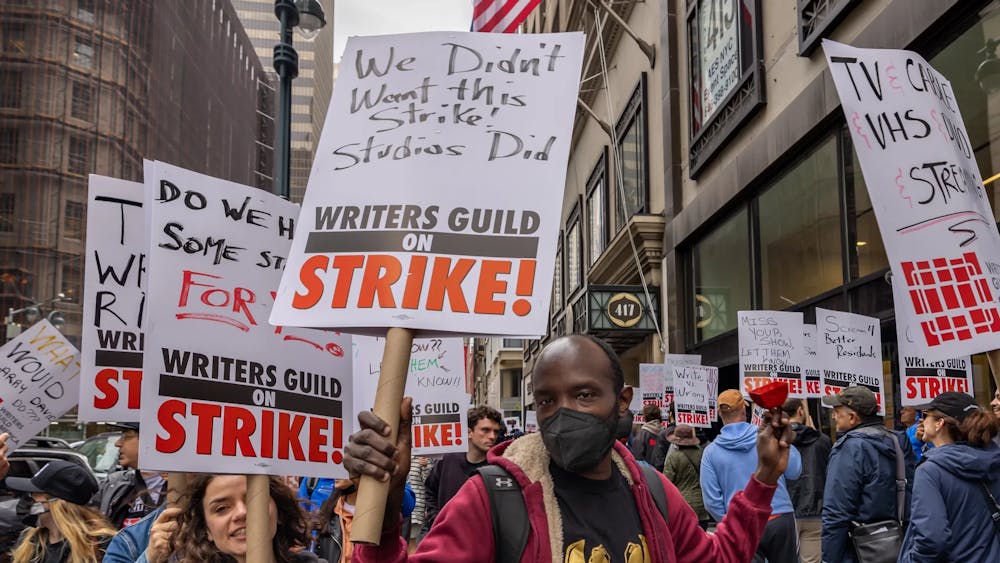On May 1, 2023, film buffs and couch potatoes alike were left in grievance as over 50 of television’s most beloved programs were canceled indefinitely. Why such a drastic move? The Writers Guild of America (WGA) announced they were going on strike.
For a month leading up to the strike, the WGA had requested updated working conditions to account for the evolving role of technology in the industry. The guild mainly sought “fairer pay” — wage adjustment due to increased demand in streaming services — as well as a ban on the use of AI in screenwriting. After many failed attempts to negotiate with the media powerhouses (Netflix, Amazon, Apple, Disney, Discovery-Warner, NBC Universal, Paramount and Sony), the WGA decided that strike was a necessary evil in order “to ensure that writing survives as a sustainable profession.”
The WGA strike was in response to current economic conditions. With rising inflation rates, job security has become an uncertainty; inflation has eaten into consumers' purchasing power, reducing real wages. Add the lingering threat of AI replacing human labor, and it’s understandable why such a vast amount of workers are feeling tense. There are currently hundreds of worker strikes taking place in the U.S.
The WGA ultimately succeeded in their efforts, lifting their strike Sept. 25 in order to accept the “exceptional” deal offered to them, which met nearly all of their demands. Despite their win, however, many remain concerned about the future of the film industry.
A main concern is that corporate film studios are sacrificing authentic voices and stories in exchange for franchise-based “comic book” entertainment that guarantees to amass billions of viewers. In a recent interview, filmmaker Martin Scorsese (“The Wolf of Wall Street,” “Goodfellas” and “Mean Streets”) best sums up this phenomena. Scorsese argues that Hollywood is no longer interested “in supporting individual voices that express their personal feelings or their personal thoughts and personal ideas on a big budget.” A particular quote from Scorsese has gone viral, resurfacing among tabloid headlines and Instagram infographics: “Well, the industry is over.”
The WGA’s writers seem to agree — the official WGA Strike statement asserts that "the companies have broken this business. They have taken so much from the very people, the writers, who have made them wealthy.”
Just because writers are now receiving higher compensation for their work does not mean that their creative voices are being given the platform they once had. These big production companies still hold the power.
With the rise of streaming services, creative directors are now given greater autonomy over their vision of work, without the restrictions of cable network standards. The majority of the industry’s budget is now allocated to movies that will generate the greatest box-office success — and this often means valuing profit over artistry. And while indie films most certainly serve their niche, it’s the big-budget blockbusters, Scoresee argues, that shape the zeitgeist of our culture.
So while the WGA had its demands met, the end of the strike does not guarantee a sunny future for the film industry. As consumers in an era where profit trumps creativity, we need to reconsider the value of the media we’re ingesting.
Perhaps we’re just entering a new era of Hollywood — one where shock value is favored over soul. But until some of the creative power that’s been usurped by studios is reallocated to individual artists, creative justice for writers will not be achieved. The industry needs more vulnerable, authentic voices in order to restore the emotional impact that film once provided.
Get The Chronicle straight to your inbox
Signup for our weekly newsletter. Cancel at any time.

